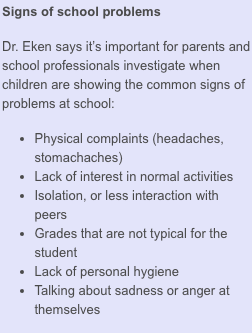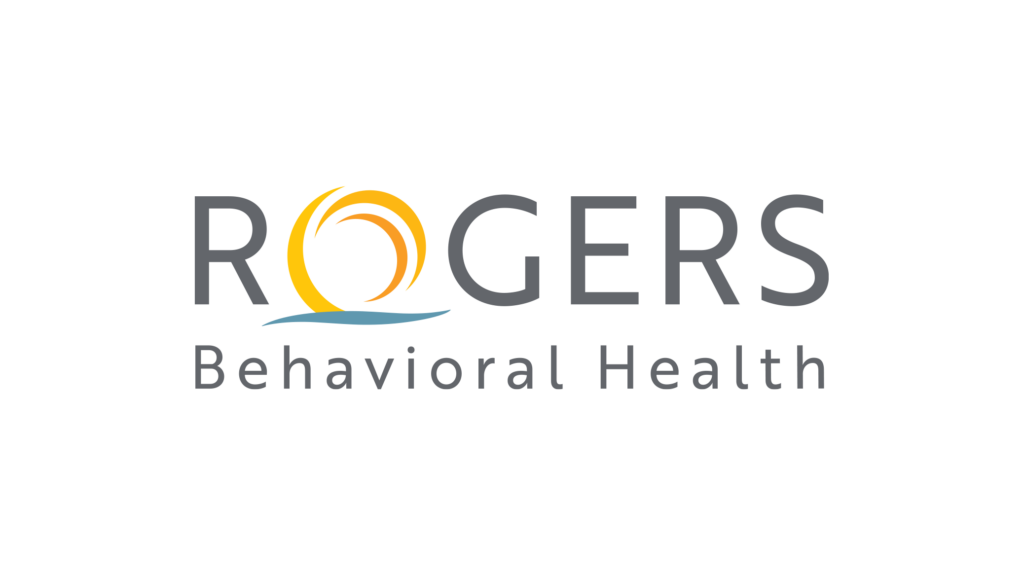
Holiday break is supposed to be just that – a chance for kids to get a break from homework and tests. Children are expected to return to school, rejuvenated, ready to learn more. But for some kids, this simply isn’t the case.
For children affected by mental illness, these transitions can be even more difficult. For children with ADHD, it becomes an issue of having to concentrate even harder in order to keep up with new material. For the child with social anxiety, the idea of returning to school can create resistance. For many other children, holiday breaks translate into relief from bullying or social situations where friendships are difficult or nonexistent. Returning to this environment is not something these children look forward to.
Stephanie Eken, MD, FAAP, is the medical director of the Child Center at Rogers Behavioral Health. She is a board-certified child and adolescent psychiatrist, who is also a pediatrician. Dr. Eken says that children who are having trouble with school frequently complain of stomachaches, headaches or fatigue and are often evaluated emotional causes to those problems. With an increased awareness of these symptoms, it’s more commonplace for pediatricians to refer children for mental health treatment.
Common causes of school refusal
“The most common cause of school refusal is separation anxiety. For children who are bullied or don’t feel good about themselves, the school break can be a reprieve,” Dr. Eken said. “But, they may have anticipatory anxiety about returning to school.” Children who have trouble starting a new school year or adjusting to a new school may also struggle with the transition following a long holiday break.
With academic and emotional concerns, parents are often at a loss, not knowing how to make this transition better for their child, and unsure of the best way to help them. Dr. Eken offered suggestions for parents whose children struggle at this time of the year. “It helps if they have some structure over the break so they don’t have to change routines when school begins. It can also help to get additional therapy over the break to support them. But it’s really important that parents highlight the child’s strengths and let them know that you’ll be there to advocate for them.”
Raising awareness with school professionals
Dr. Eken explained that there were many school professionals who simply need to understand more about each child’s challenges. “When they think about childhood OCD, they think about contamination issues,” she said. “But children who are dealing with perfectionism aren’t as easily understood. In fact, teachers may be providing the positive feedback that that child’s work is ‘perfect.’ What they don’t see is the time the child spends at home, maybe hours, to complete another ‘perfect’ assignment.”
Dr. Eken said children with ADHD may have trouble adjusting because certain personality traits are being used to describe their behavior. “When they don’t understand the causes of the behavior, some teachers are unknowingly signaling to the child that there is something ‘wrong’ with them.”
Children with separation anxiety may fear for the safety of their families or themselves and may seek reassurance from adults. “By nature, teachers can be very reassuring, but this can make it harder for kids with anxiety to face their fears,” Dr. Eken said. “We help educate the teachers. We teach them how to work with the kids and create a stronger support network for them at school.”
Supportive treatment for children and families
Dr. Eken and the treatment team at the Child Center work with kids and their families to develop healthy coping techniques and routines that help children feel more in control of their world and better able to handle the everyday challenges they encounter at school. “We work with the child, parents and the schools to help them advocate if they need other accommodations,” Dr. Eken said.
During treatment children and families come to recognize the thoughts and behaviors that may lead to avoidance of certain situations. They learn about co-morbidity, or co-occurring diagnoses. “They may be referred for depression, but we need to treat the underlying anxiety, OCD or ADHD to really help them with the depression,” Dr. Eken said.
“We incorporate many different therapies to help kids build confidence in themselves and realize their strengths,” Dr. Eken said. “With the skills they learn in treatment, they can be better prepared for these annual challenges.”
If you do not feel you, or a loved one, needs treatment right away but may be concerned, we offer online quizzes to possibly provide some relief. While these quizzes do not provide a diagnosis, it could be the first step in finding the treatment you, or a loved one, may need. Take our online Anxiety or OCD Quiz today.


